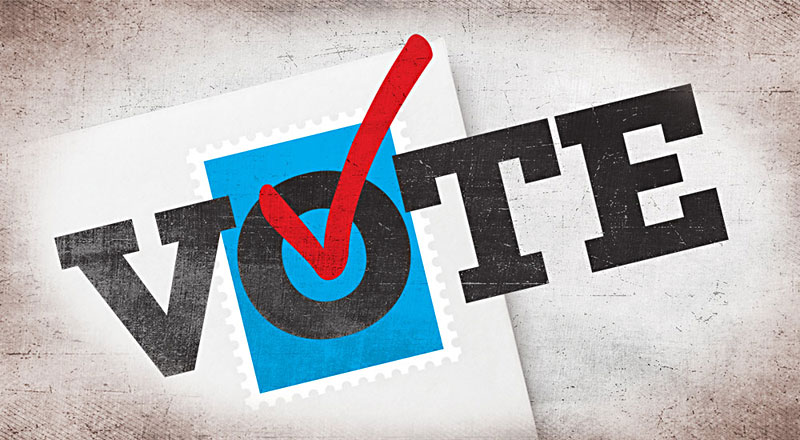Voting By Mail? The Decision Is Yours.
Texas Supreme Court rejects Paxton writ of mandamus, leaves VBM to voter
By Michael King, Fri., June 5, 2020
On May 27, the Texas Supreme Court ruled that the judgment and decision of what constitutes a "disability" for voting purposes is in the hands of the Texas voter. Checking "disability" on the application for a mailed ballot requires the county clerk or election administrator to provide that ballot, and that's that.
Amid the confusion in the aftermath of the SCOTX decision – confusion intentionally generated by Texas Attorney General Ken Paxton and then amplified by the immediate media coverage – the central outcome of the ruling has been obscured. The Court ruled emphatically that the voter is the sole judge of their disability for in-person voting.
Moreover, Solicitor General Kyle Hawkins, arguing for the state in the March 20 SCOTX hearing (heard remotely, via Zoom), conceded as much in the first few minutes. In response to a question from Justice Debra Lehrmann, Hawkins acknowledged that the state was not asking that local election officials "look behind" the ballot application, or seek additional information outside "the four corners" of the application itself. "We're asking that if there is 'extraneous information' on the application" – i.e., citing fear of COVID-19 or similar language – "that those applications be rejected."
Asked if he could cite evidence of such applications – accepted or rejected – Hawkins said he could not, and in the subsequent unanimous ruling, Chief Justice Nathan Hecht wrote that no evidence of election officials' violating any law was seen by the court. That ruling (along with three concurring opinions, differing on details) unconditionally denied Paxton's request for a writ of mandamus to force officials in five counties – Travis, Harris, Cameron, Dallas, and El Paso – to adhere to his interpretation of state election law, reiterating that under Texas law, the voter is the sole judge of their ability to vote in person.
The court did decline to explicitly broaden the legal definition of "disability" to include a "lack of immunity to COVID-19," as had been entertained in the lower courts – but left to the voter to determine if some aspect of a personal health status created a vulnerability that required voting by mail. "We agree, of course," wrote Hecht, "that a voter can take into consideration aspects of his health and his health history that are physical conditions in deciding whether, under the circumstances, to apply to vote by mail because of disability. We disagree that lack of immunity, by itself, is one of them. As we have said, the decision to apply to vote by mail based on a disability is the voter's, subject to a correct understanding of the statutory definition of 'disability.'"
One day after the SCOTX hearing, on May 21, Justice Lehrmann, 63, announced that she and her husband had both been diagnosed with COVID-19, despite generally observing quarantine restrictions and leaving their home only "to go to the grocery store." Sequestered in their own homes, her colleagues would have been aware of her condition while drafting their opinions.
Despite Paxton's immediate and spurious declaration of victory – crowing in a press release that "election officials have a duty to reject mail-in ballot applications from voters who are not entitled to vote by mail" – the court explicitly rejected that argument, and subsequent media reports have caught up with the truth. "It was a complete win," Travis County Clerk Dana DeBeauvoir told us this week. "The court said we [election officials] are not lawless, and it's a big win for the voters. The court ruled unanimously that [applying for a mail ballot] is their prerogative and their right." DeBeauvoir said she was "really irritated" with the misleading reporting that followed the decision, and hopes that voters are coming to understand that the judgment of disability for voting purposes belongs to them.
This is not the end of the matter. Cases pending before the Fifth Circuit Court of Appeals and the federal district court in San Antonio address broader constitutional questions – e.g., whether Texas election law limiting voting by mail discriminates against younger and minority voters – and those cases, which could rise to the U.S. Supreme Court, have yet to be heard. But recently, Secretary of State Ruth Hughs, responding to a VBM petition and questions from advocacy group Progress Texas, cited the election code's definition of "disability" and concluded: "If a voter believes they meet this definition, they can submit an application for ballot by mail."
DeBeauvoir said that as of June 1, her office had received "well over 17,000" mail ballot applications – many times the number received in past election cycles – though she didn't yet have specific estimates for the various categories of eligibility. She said Commissioners Court has determined it is not affordable to mail applications to all registered voters, but that the ballots will be postage-paid for return. "We check for various things [birth dates for 65-or-over applications, out of county addresses for absentees] but if a voter checks the box for 'disability,' we do not request additional information."
To vote by mail, you must first apply for a ballot. The Travis County Elections Division only sends out applications or ballots on specific request from a voter. For more info, or to download a ballot application, visit countyclerk.traviscountytx.gov/elections/ballot-by-mail.html.
To vote, you must first be registered. The last day to register to vote in the July 14 primary run-off and Senate special election is Mon., June 15. More info at austinchronicle.com/elections.
Got something to say on the subject? Send a letter to the editor.









